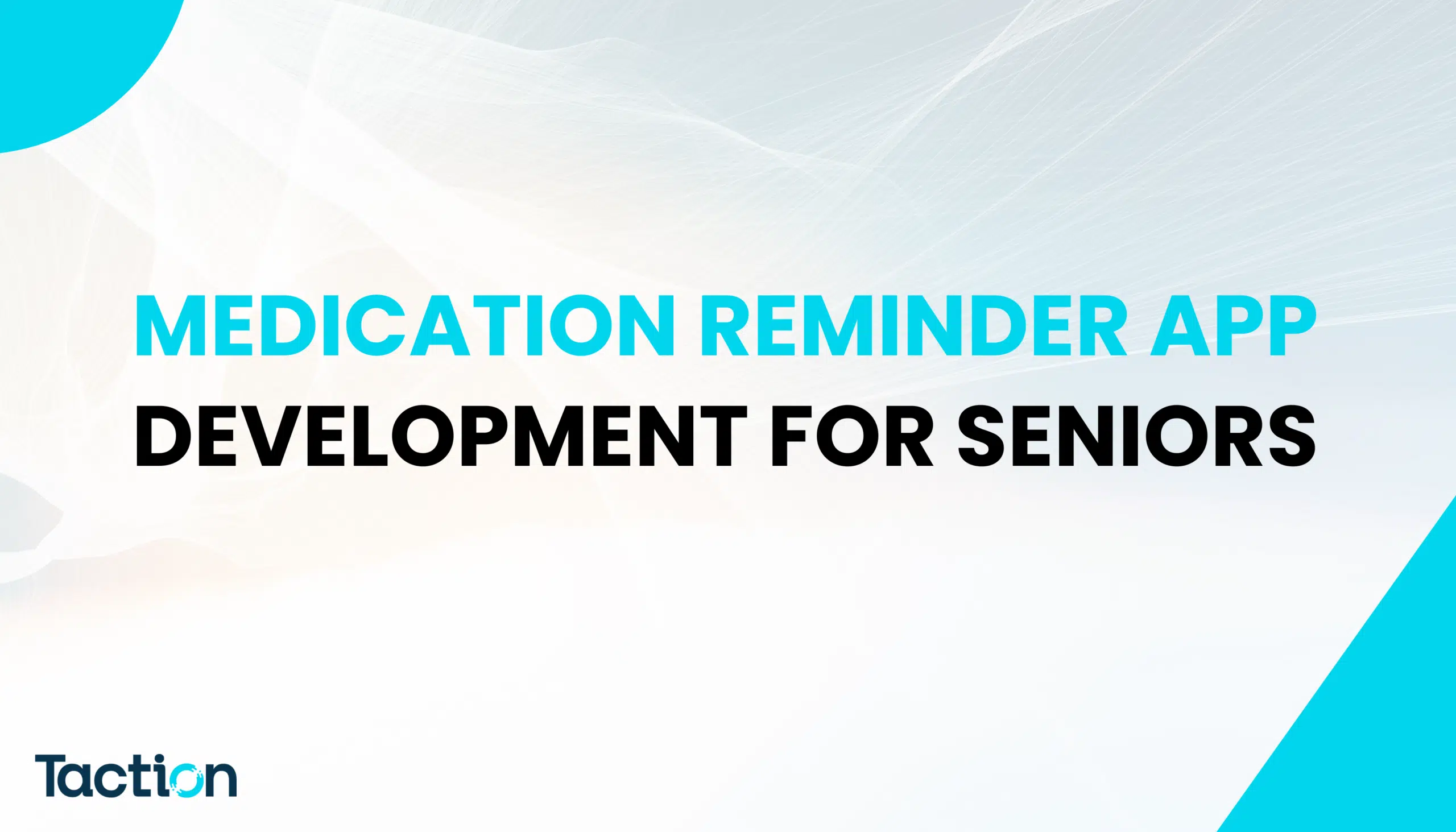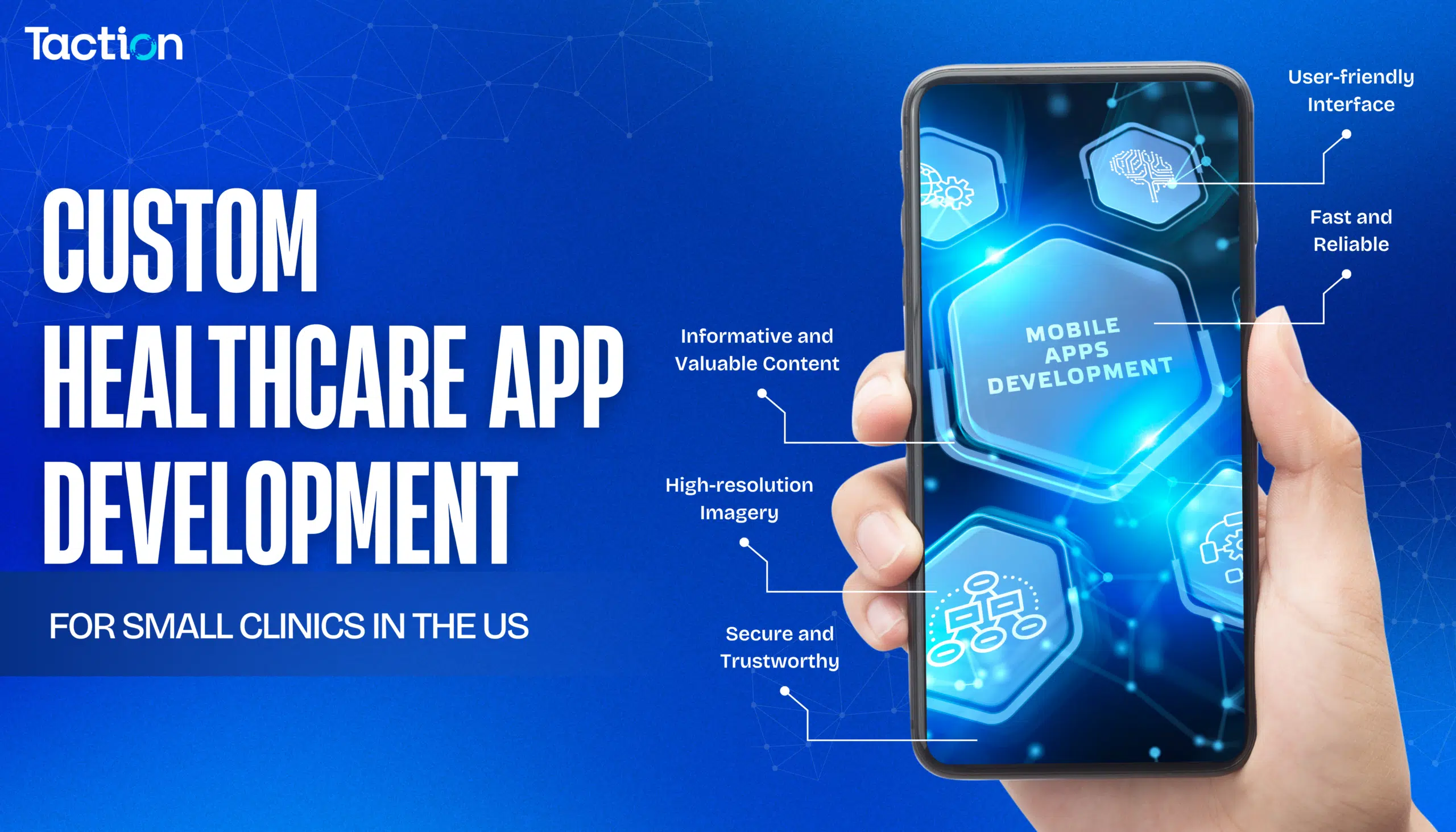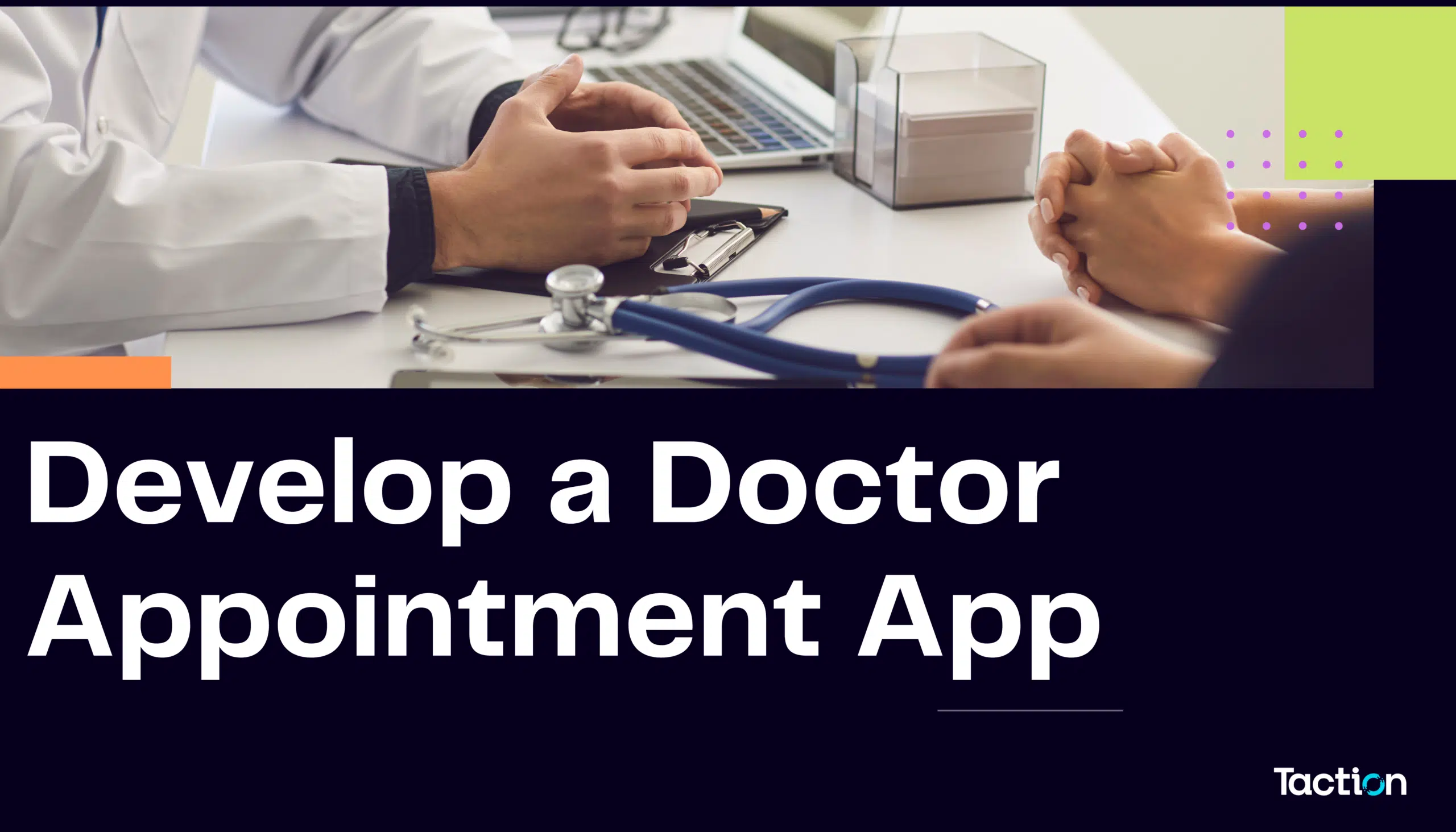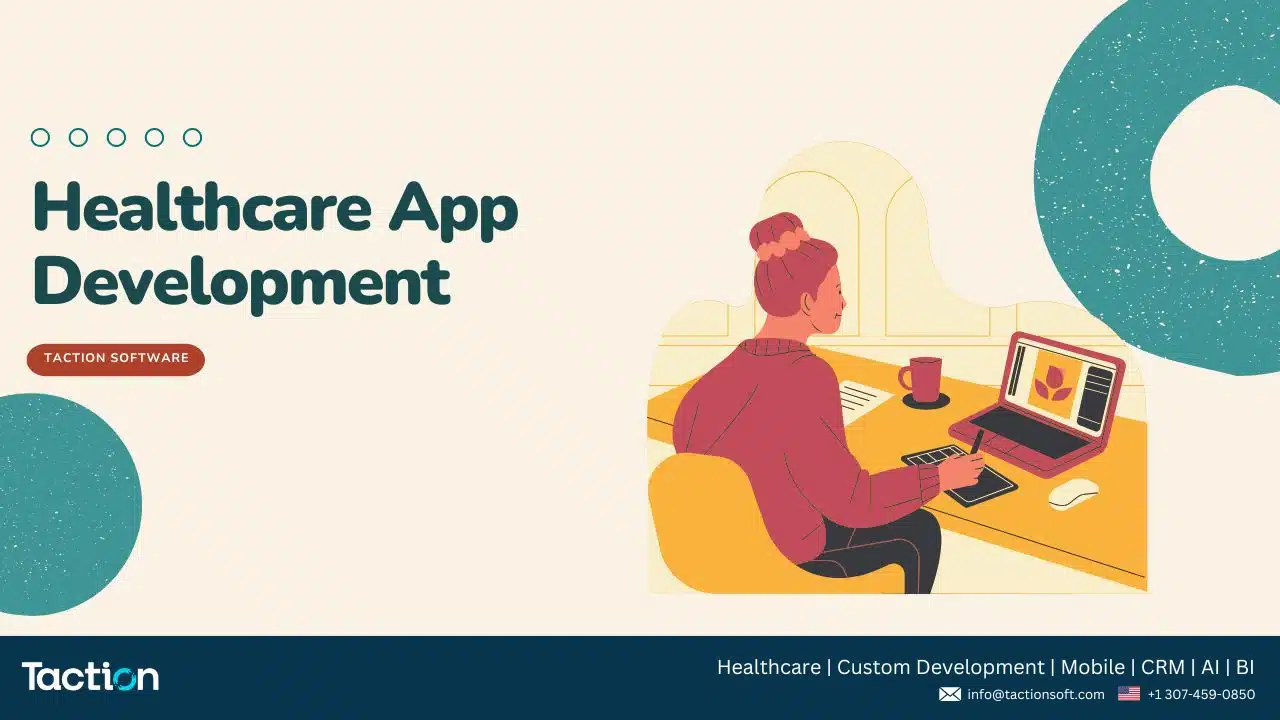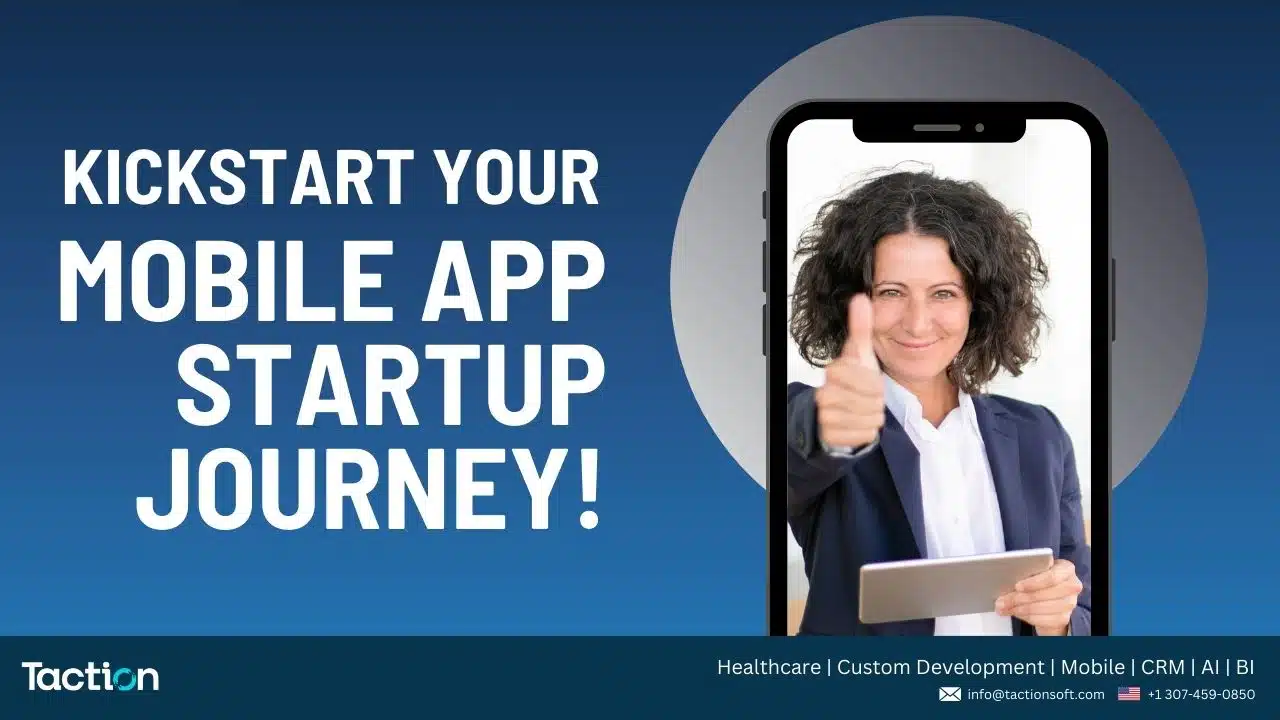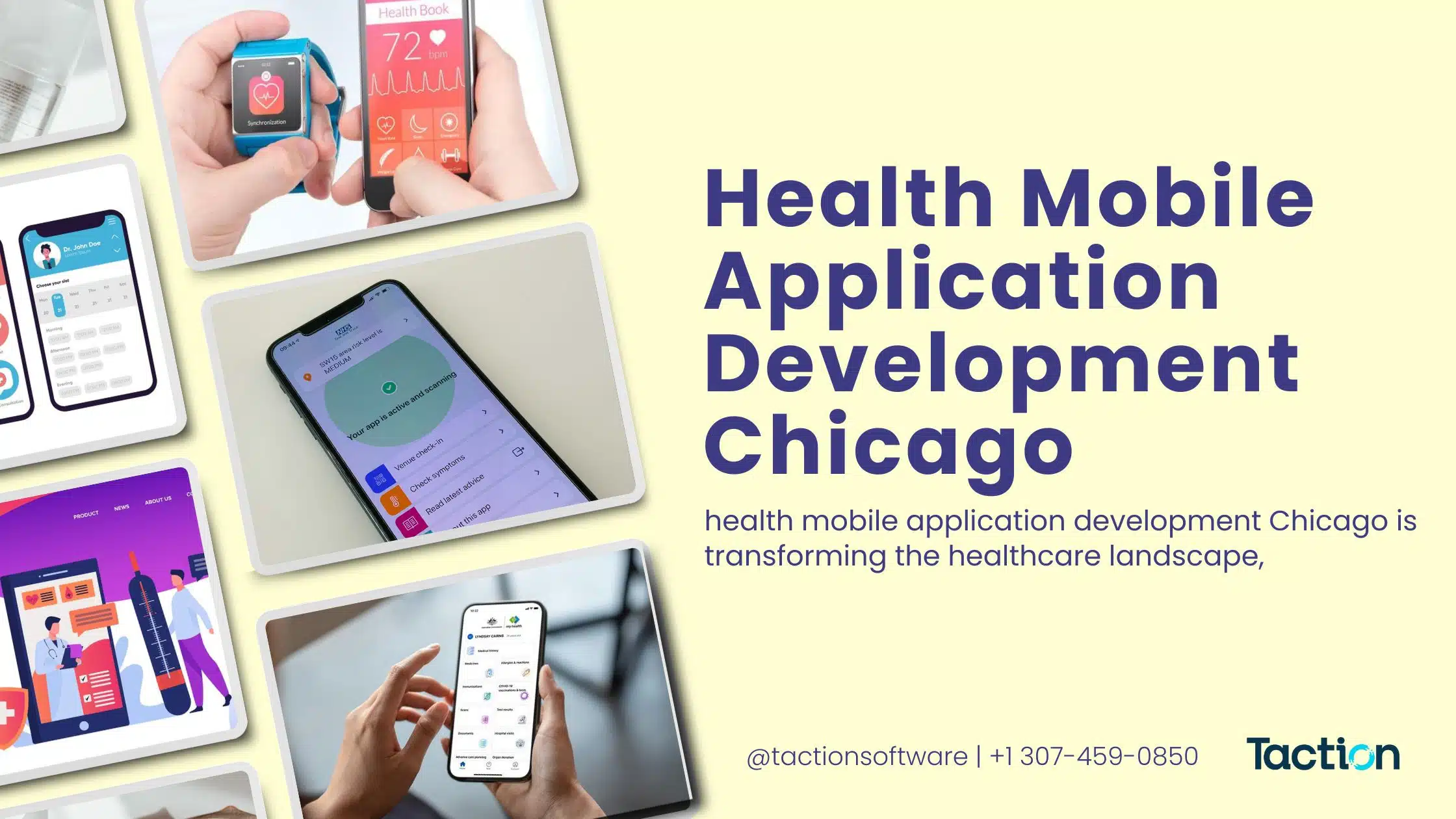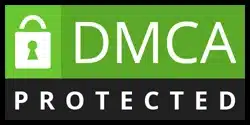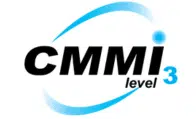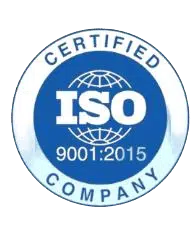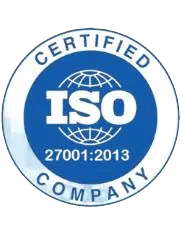We Built the Best Medication Reminder App Development for Seniors As people age, managing medications becomes increasingly challenging. Seniors often juggle multiple prescriptions with complex dosages, making it easy to forget a dose or take the wrong medication at the wrong time. Missed or incorrect doses can lead to serious health complications, hospitalizations, or even life-threatening situations. This growing concern has led to the rise of medication reminder apps—digital solutions designed to help seniors stay on track with their prescriptions. However, not all medication reminder apps are built with seniors in mind. Many lack user-friendly interfaces, real-time alerts for caregivers, or essential compliance features that ensure safety and adherence. Recognizing this gap, Taction Software leveraged its 20+ years of expertise in healthcare IT to build a best-in-class medication reminder app tailored specifically for seniors. What makes our app different? Beyond just setting reminders, it offers personalized medication schedules, real-time notifications, caregiver connectivity, voice-assisted reminders, and HIPAA-compliant security measures. Designed with simplicity and accessibility in mind, the app features large fonts, intuitive navigation, and easy-to-understand alerts, ensuring seniors can use it effortlessly. Additionally, integration with electronic health records (EHRs) and pharmacy systems makes prescription management seamless. At Taction Software, we believe that technology should empower seniors to maintain independence and take control of their health. Our medication reminder app isn’t just another tool—it’s a lifesaving companion designed to enhance medication adherence and improve overall well-being. Why Seniors Need a Medication Reminder App? Medication adherence is a critical aspect of senior healthcare, yet it remains a widespread challenge. Studies show that nearly 50% of seniors do not take their medications as prescribed, leading to increased hospitalizations, deteriorating health conditions, and even preventable fatalities. Non-adherence can result from forgetfulness, cognitive decline, complex medication schedules, or difficulty managing multiple prescriptions—issues that become more common as people age. For seniors with chronic conditions like diabetes, heart disease, or hypertension, missing a dose can have severe consequences, including sudden spikes in blood pressure, blood sugar fluctuations, or worsened symptoms. The challenge is even greater for those prescribed multiple medications at different times of the day, requiring strict compliance to avoid drug interactions or ineffectiveness. A medication reminder app solves this problem by providing timely alerts, tracking medication history, and ensuring caregivers stay informed. It eliminates confusion, prevents missed doses, and fosters better adherence, ultimately improving health outcomes and reducing emergency visits. With technology-driven solutions, seniors can regain control over their medication schedules, ensuring they stay on top of their health without added stress. Key Features of an Ideal Medication Reminder App for Seniors A medication reminder app should do more than just send notifications—it must be designed with seniors in mind, prioritizing ease of use, security, and caregiver involvement. Here are the essential features that make a medication reminder app truly effective for seniors: User-Friendly Interface with Large Fonts & Voice Assistance Seniors often struggle with small text, complex menus, and hard-to-navigate interfaces. A well-designed medication reminder app should feature large, high-contrast fonts, intuitive icons, and simple navigation to ensure ease of use. Voice assistance is another critical feature, allowing seniors to set reminders, confirm doses, or request information using voice commands, reducing the need for manual input. Touch-friendly buttons and accessibility settings further enhance usability, making the app intuitive for users with vision or motor impairments. Smart Alerts and Personalized Reminders A good reminder system is more than just a basic alarm—it should be customizable to match each senior’s medication schedule. Whether through SMS, phone calls, app notifications, or smart home device alerts, seniors can receive timely reminders in the format they prefer. Additionally, the app can track adherence and send real-time confirmation to caregivers or healthcare providers, ensuring compliance and intervention when necessary. Family & Caregiver Connectivity Many seniors rely on family members or caregivers to help manage their medications. A reliable app should include real-time caregiver connectivity, allowing loved ones to receive alerts when a dose is missed, track adherence trends, and intervene when necessary. This feature provides peace of mind for families while ensuring seniors stay consistent with their medication regimens. Medication Refill & Dosage Tracking Running out of essential medication can have serious consequences. An advanced medication reminder app should send automated alerts when a prescription is running low and offer seamless integration with pharmacies for easy refills. Additionally, dosage tracking helps prevent overdosing or skipping doses, ensuring the correct medication is taken at the right time. HIPAA-Compliant Security and Data Privacy Security is crucial when dealing with sensitive medical data. The app must adhere to HIPAA (Health Insurance Portability and Accountability Act) guidelines, ensuring all health information remains private and protected. End-to-end encryption, secure cloud storage, and strict access controls help prevent unauthorized access, safeguarding personal health records from breaches. By combining these essential features, a medication reminder app can significantly enhance medication adherence for seniors, improve their overall health, and provide caregivers with the tools needed to offer better support. How Taction Software Built the Best Medication Reminder App? At Taction Software, we leveraged our 20+ years of expertise in healthcare IT to develop a cutting-edge medication reminder app designed specifically for seniors. Our development process was guided by deep industry knowledge, collaboration with healthcare professionals, and the latest technological advancements to ensure seamless medication management and improved adherence. A Patient-Centric Development Approach Understanding the challenges seniors face in medication adherence, we worked closely with doctors, pharmacists, and geriatric care specialists to design an app that prioritizes usability, accuracy, and compliance with healthcare regulations. The goal was to create an app that simplifies medication tracking while integrating advanced features for real-time monitoring and caregiver connectivity. Leveraging AI and Machine Learning for Smart Medication Management Our app goes beyond basic reminders by incorporating AI and machine learning to analyze user behavior and predict medication adherence patterns. It adjusts reminders based on user habits, detects potential non-compliance, and provides intelligent recommendations to caregivers and healthcare providers. This proactive approach ensures that seniors receive personalized support tailored to their needs. Seamless
Custom Healthcare App Development for Small Clinics in the US Small clinics in the United States often face challenges such as limited resources, manual workflows, and growing patient demands. Custom healthcare app development offers a game-changing solution tailored to meet these specific needs. By incorporating features like appointment scheduling, patient management, EHR integration, and secure telemedicine options, these apps empower small clinics to improve efficiency, enhance patient care, and stay compliant with regulations like HIPAA.Unlike off-the-shelf solutions, custom healthcare apps are designed with the unique workflows of small clinics in mind. They address key operational challenges while offering scalability for future growth. Moreover, emerging technologies such as AI, IoT, and blockchain further enhance the potential of these apps, ensuring they remain relevant and impactful in a rapidly evolving healthcare landscape.Taction Software specializes in delivering custom healthcare app development for small clinics in the US, offering tailored solutions that streamline operations, boost patient satisfaction, and drive long-term success. Let us help your clinic embrace the digital transformation and thrive in today’s competitive healthcare environment. Why Small Clinics in the US Need Custom Healthcare Apps In the competitive healthcare landscape, small clinics often struggle to keep up with the growing demands of patients and the complexities of administrative tasks. Custom healthcare apps provide tailored solutions that address these unique challenges, empowering small clinics to thrive in a digital-first world. Challenges Faced by Small Clinics Without Technology Small clinics without modern technological support face significant obstacles that can hinder their growth and efficiency. Manual processes for appointment scheduling and patient record management often lead to errors and inefficiencies. Communication gaps between patients and staff can result in poor patient satisfaction. Additionally, the lack of real-time data access and analytics makes it challenging to make informed decisions. Compounding these issues, compliance with strict regulations like HIPAA becomes more difficult without robust digital tools to safeguard sensitive patient data. The Role of Custom Apps in Overcoming These Challenges Custom healthcare apps are designed specifically for small clinics to address these pain points. These apps automate administrative workflows, such as scheduling and billing, reducing the likelihood of errors and freeing up staff to focus on patient care. They also enable seamless communication between clinics and patients through secure messaging and notifications, improving engagement and satisfaction. Features like real-time data tracking and reporting allow clinics to make data-driven decisions, ensuring better resource allocation and patient outcomes. Furthermore, custom apps are built with HIPAA-compliant frameworks, ensuring the highest standards of data security and regulatory adherence. By investing in custom healthcare apps, small clinics can not only overcome operational inefficiencies but also enhance the quality of care they provide, ensuring long-term success in a competitive healthcare environment. Key Features of Custom Healthcare Apps for Small Clinics Custom healthcare apps for small clinics are designed to address their specific operational needs, enhance patient care, and ensure regulatory compliance. These apps are equipped with a variety of features that streamline processes and create a seamless healthcare experience for both patients and providers. Below are the key features that make custom apps indispensable for small clinics. Appointment Scheduling and Patient Management Efficient appointment scheduling is critical for small clinics to optimize their resources and reduce patient wait times. Custom healthcare apps allow clinics to offer online booking options, automated reminders, and real-time availability updates. These features minimize scheduling conflicts and no-shows, saving time for both staff and patients. Patient management tools also enable clinics to store and organize patient profiles, medical histories, and visit records in a centralized system, ensuring quick and easy access for healthcare providers. Electronic Health Records (EHR) Integration Integrating electronic health records into custom healthcare apps provides a unified platform for managing patient data. This feature eliminates the need for manual record-keeping and ensures accurate, up-to-date information at all times. With EHR integration, small clinics can streamline workflows, reduce paperwork, and improve collaboration among healthcare providers. It also enhances decision-making by giving clinicians instant access to patient histories, lab results, and treatment plans. Secure Communication Channels for Patient Interaction Custom apps provide HIPAA-compliant secure communication channels that facilitate seamless interaction between patients and clinics. Features such as in-app messaging, email notifications, and video conferencing ensure that patients can easily reach out to their healthcare providers. These tools enhance patient engagement and satisfaction while maintaining the confidentiality of sensitive medical information. Telemedicine Features for Remote Consultations Telemedicine has become a cornerstone of modern healthcare, and small clinics can benefit significantly from incorporating this feature into their custom apps. Telemedicine enables clinics to offer remote consultations through video calls, making healthcare accessible to patients who cannot visit in person. This feature is especially valuable for managing follow-ups, chronic conditions, or rural patients who face geographical barriers. Telemedicine not only improves patient convenience but also expands the clinic’s reach, enhancing its service offerings. By incorporating these key features, custom healthcare apps transform the way small clinics operate, empowering them to deliver efficient, patient-centered care while remaining competitive in the digital healthcare landscape. Benefits of Custom Healthcare Apps for Small Clinics Custom healthcare apps offer transformative benefits that address the specific needs of small clinics, enabling them to operate more efficiently and provide superior patient care. These apps bridge the gap between advanced healthcare technology and accessible, practical solutions for clinics with limited resources. Here’s how they can make a difference: Streamlining Daily Operations Managing daily operations manually can be time-consuming and error-prone. Custom healthcare apps automate critical tasks like appointment scheduling, billing, and inventory management, freeing up staff to focus on patient care. Features such as real-time updates, workflow automation, and analytics tools allow clinics to operate more efficiently, reducing delays and improving overall productivity. These operational efficiencies not only save time but also help clinics manage resources more effectively, leading to cost savings. Enhancing Patient Engagement and Satisfaction Patient engagement is key to the success of any healthcare practice, and custom apps provide tools that enhance the patient experience. Features like online appointment booking, personalized notifications, and access to
How Much Does it Cost to Develop a Doctor Appointment App Like ZocDoc? The cost to develop a doctor appointment app like ZocDoc depends on various factors, including the complexity of features, the development team’s expertise, and the technologies used. These apps are revolutionizing the healthcare industry by simplifying the process of booking appointments, improving patient care, and streamlining operations for healthcare providers. At Taction, we specialize in creating custom doctor appointment apps tailored to your business needs. Whether you’re a healthcare provider, a startup, or a hospital system, understanding the development cost breakdown is essential for planning your project effectively. Key factors influencing the cost include: App Features and Functionalities: Basic apps with core scheduling features cost less than those with advanced features like telemedicine, AI-powered recommendations, and analytics dashboards. Platform Choice: Developing for a single platform (iOS or Android) costs less than creating a cross-platform app. Design Complexity: A user-friendly, intuitive UI/UX design requires additional effort, which can impact the overall cost. Team Expertise: Partnering with an experienced company like Taction ensures a quality product, but the cost varies depending on the team’s size and location. Development Time: The longer the development timeline, the higher the cost, especially for apps requiring extensive testing and iterations. On average, the cost of developing a doctor appointment app like ZocDoc can range from $50,000 to $250,000, depending on the scope and customization. Investing in such an app offers significant returns by enhancing patient engagement, reducing administrative burdens, and improving operational efficiency. In the following sections, we’ll dive deeper into the features, technologies, and steps involved in creating a high-quality doctor appointment app. Ready to transform your vision into reality? Partner with Taction to develop an app that sets you apart in the competitive healthcare market! Overview of the Market for Doctor Appointment Apps Like ZocDoc The healthcare industry is undergoing a digital transformation, and doctor appointment apps like ZocDoc are at the forefront of this revolution. These apps have redefined how patients interact with healthcare providers by making the process of booking medical appointments seamless and efficient. The global market for doctor appointment apps is projected to grow significantly, fueled by the increasing demand for convenience, accessibility, and personalized healthcare experiences. Key Drivers of GrowthSeveral factors contribute to the rapid adoption of doctor appointment apps: Rising Smartphone Penetration: With smartphones becoming ubiquitous, patients now expect healthcare services to be accessible at their fingertips. Demand for Contactless Solutions: The COVID-19 pandemic accelerated the need for telemedicine and digital appointment solutions, making such apps a necessity. Healthcare Digitization: Clinics, hospitals, and private practices are embracing digital platforms to streamline operations and improve patient care. User Convenience: Patients can easily find healthcare providers, compare reviews, book appointments, and even consult doctors via video calls, all from one platform. Market TrendsThe market is also witnessing exciting trends, such as: AI-Driven Insights: Apps are leveraging artificial intelligence to provide tailored recommendations for doctors and specialists based on user preferences and medical history. Integration of Telemedicine: Many doctor appointment apps now offer video consultations, which are becoming a preferred mode of interaction for non-emergency cases. Expansion into Niche Segments: Apps are diversifying their offerings by catering to specific specialties, such as mental health, pediatrics, and dermatology. Process to Develop a Doctor Appointment App Similar to ZocDoc Building a doctor appointment app like ZocDoc involves careful planning, efficient execution, and adherence to healthcare regulations. Here’s a step-by-step guide to developing an app that meets user expectations while ensuring scalability and compliance with industry standards. Get Ready with Your Database The foundation of a successful doctor appointment app lies in its database. Start by compiling accurate, up-to-date information about doctors, clinics, specialties, and availability schedules. Collect doctor profiles, qualifications, specializations, and ratings. Include clinic details such as locations, hours of operation, and services offered. Use advanced database systems to ensure fast data retrieval and seamless integration with app functionalities. Consider implementing geo-location data to enable users to find doctors nearby. Verify Your Prototype Before diving into development, create a detailed prototype of your app. Map out all features and design the user journey, from login to booking. Use wireframes and mockups to visualize how the app will look and function. Test the prototype with stakeholders to identify any usability issues or missing features. This step ensures that the development process is aligned with user expectations and prevents costly changes later. Review the Scheduling Tools Scheduling is a core feature of any doctor appointment app. Incorporate real-time calendar synchronization to show accurate availability. Allow users to book, reschedule, or cancel appointments with ease. Enable automated reminders for upcoming appointments to reduce no-shows. Test the scheduling tools rigorously to ensure they handle multiple bookings without errors or downtime. Work on the UI/UX Design A seamless and intuitive user interface is critical for retaining users. Design the app with a clean, easy-to-navigate layout that appeals to both patients and doctors. Use consistent branding, clear fonts, and accessible color schemes. Implement features like a search bar, filters, and sorting options to make finding doctors quick and efficient. Ensure responsive design for compatibility across devices, including smartphones and tablets. Ensure HIPAA Compliance Compliance with healthcare regulations, such as HIPAA (Health Insurance Portability and Accountability Act), is mandatory for doctor appointment apps. Implement data encryption to protect patient information. Use secure authentication methods, such as multi-factor authentication (MFA). Limit data access to authorized personnel only. Regularly audit your app’s security to ensure ongoing compliance. Initiate Testing Testing is a crucial phase to ensure your app is free of bugs and offers a smooth user experience. Perform functional testing to verify that all features, such as appointment booking and payments, work as intended. Conduct performance testing to ensure the app handles high traffic without slowing down. Include security testing to identify vulnerabilities and fix them promptly. Gather feedback from beta users to refine the app further before launch. Release and Post-Launch Maintenance Once the app successfully passes all testing phases, it’s ready to launch. However,
Healthcare App Development The healthcare industry is evolving rapidly, with technology playing a pivotal role in enhancing efficiency, accessibility, and quality of care. Among these advancements, healthcare app development has emerged as a transformative tool, offering innovative solutions to longstanding challenges. These applications bridge the gap between healthcare providers and patients, streamline administrative processes, and empower individuals to take control of their health. The Importance of Healthcare App Development Healthcare app development has moved beyond being a convenience; it has become a necessity. These apps cater to a wide range of needs, from chronic disease management to telehealth consultations, making healthcare more accessible and efficient. Key Advantages of Healthcare Apps: Accessibility: Telemedicine and mobile health apps bring healthcare to remote areas, ensuring no one is left behind. Personalized Care: AI-powered apps offer tailored health insights and recommendations based on patient history. Cost Reduction: By reducing unnecessary visits and automating administrative tasks, healthcare apps save money for providers and patients alike. Real-Time Monitoring: Wearables and connected devices provide continuous health tracking, enabling early detection of issues. Patient Empowerment: Apps encourage users to engage actively in their health by providing easy access to information and tools. Types of Healthcare Apps: Telemedicine Apps: Enable virtual consultations and follow-ups. Lifestyle and Wellness Apps: Focus on fitness, diet, and mental well-being. Chronic Disease Management: Assist in monitoring conditions like diabetes, hypertension, or asthma. Electronic Health Record (EHR) Integration: Provide secure access to patient records for both users and providers. Healthcare Provider Apps: Help professionals manage appointments, prescriptions, and patient communication. Emerging Trends in Healthcare App Development Healthcare app development is evolving at an unprecedented pace. Technological advancements and changing user expectations are driving innovation in this field. 1. Artificial Intelligence and Machine Learning AI and ML have found a prominent place in healthcare apps. From predictive diagnostics to virtual health assistants, AI is enabling smarter, faster, and more accurate healthcare solutions. Example: Apps that analyze symptoms using AI to suggest potential conditions. Benefit: Reduced diagnostic errors and enhanced patient engagement. 2. Telemedicine Growth The COVID-19 pandemic accelerated the adoption of telemedicine. Healthcare apps now integrate telehealth services, allowing patients to consult doctors, obtain prescriptions, and access care from the comfort of their homes. Example: Apps offering video consultations with licensed physicians. Benefit: Improved access to care for remote or immobile patients. 3. Integration with Wearables Wearable technology such as fitness trackers and smartwatches sync with healthcare apps to monitor vital signs like heart rate, sleep patterns, and activity levels. Example: Apps analyzing data from devices like Fitbit or Apple Watch. Benefit: Early detection of abnormalities and continuous health tracking. 4. Blockchain for Data Security With increasing concerns about data breaches, blockchain technology ensures the secure management of sensitive health information. It provides decentralized, tamper-proof records. Example: Blockchain-based apps for managing medical records. Benefit: Enhanced trust and compliance with privacy regulations like HIPAA. 5. Patient-Centered Design Modern healthcare apps prioritize user experience (UX). Simple, intuitive interfaces and personalized content encourage greater user adoption. Challenges in Healthcare App Development Despite its potential, healthcare app development faces significant challenges that require careful consideration: 1. Regulatory Compliance Developers must navigate a complex web of regulations, including HIPAA (U.S.), GDPR (Europe), and other regional laws. 2. Data Security and Privacy Handling sensitive health information demands robust encryption, secure data storage, and transparency in data usage. 3. Integration with Legacy Systems Many healthcare providers still rely on outdated software systems, making integration difficult. 4. User Adoption Healthcare apps must cater to a diverse audience with varying levels of tech literacy. Poor design or complicated features can deter users. 5. Costs of Development Building a high-quality healthcare app requires significant investment in development, testing, and compliance. Healthcare App Development in Chicago Chicago has established itself as a major player in the healthcare app development landscape. With a robust healthcare system and a thriving tech community, the city offers an ideal environment for innovation. Why Chicago Excels in Healthcare App Development: Strong Medical Institutions: World-renowned hospitals like Northwestern Memorial Hospital and Rush University Medical Center drive demand for advanced digital solutions. Tech Talent: Chicago’s diverse workforce includes top-tier software developers, data scientists, and healthcare professionals. Startup Ecosystem: Innovation hubs like MATTER provide resources for health-tech startups, fostering collaboration between developers, providers, and investors. Diverse Demographics: The city’s multicultural population encourages the creation of inclusive and versatile apps. Local Success Stories: Tempus: A Chicago-based company using AI to personalize cancer treatment. Livongo: A digital health platform for managing chronic conditions, with deep roots in Chicago’s healthcare tech community. Key Focus Areas in Chicago: Telemedicine Expansion: Apps focusing on virtual care for underserved urban populations. Data-Driven Insights: AI-powered tools to analyze patient data for improved treatment outcomes. Healthcare App Development in Texas Texas is emerging as a leading hub for healthcare innovation, driven by its vast healthcare market and supportive policies. Why Texas is a Key Player: Massive Healthcare Network: Home to institutions like Baylor College of Medicine and MD Anderson Cancer Center. Tech-Friendly Policies: Texas offers funding initiatives and regulatory clarity that encourage healthcare app development. Diverse Needs: A mix of urban and rural populations creates a demand for varied app functionalities. Telehealth Leadership: Texas has been a pioneer in adopting telemedicine, paving the way for robust healthcare apps. Texas-Specific Innovations: Rural Health Solutions: Apps designed to bring medical care to remote areas. Veteran Support: Apps catering to the state’s large veteran population, focusing on mental health and rehabilitation services. Mental Health Apps: Platforms offering counseling and therapy sessions via secure channels. Local Success Stories: Teladoc Health: A telemedicine giant headquartered in Texas. Everlywell: A health app offering at-home lab testing kits, based in Austin. The Future of Healthcare Apps Healthcare apps will continue to evolve, driven by emerging technologies and shifting patient needs. Here are some anticipated trends: Augmented Reality (AR): Apps could use AR for virtual training, remote surgery assistance, or even patient education. 5G Connectivity: Faster internet speeds will enhance the quality of telemedicine consultations and enable real-time data sharing.
Do You Have a Startup Mindset? Do you ever look at successful startups and wonder how they did it? Perhaps your mind keeps wandering back to that idea you once had and you just can’t seem to make it real yet? Are You Feeling Confused about How to Fulfil Your Dreams? If that is the case for you, read this article as we will outline all of the fundamental steps necessary for creating an app which stands out in the mobile app marketplace. At the conclusion of this blog, we’ll also delve into another crucial element of mobile app development – costs. How to Start a Mobile App Startup: Key Steps At a time when screen time is constantly on the rise, successful small businesses often turn to Mobile App Startup solutions when developing mobile apps for business use. While both Google Play Store and App Store may seem overflowing with mobile applications from different areas of interest, only a select few find success. According to Forbes, estimates show that between 75-90% of startups fail due to app development mistakes. Therefore, before venturing into the app development business, you must create an effective plan, including validating your idea and conducting market analysis, before diving in headfirst. Also Read: How Much Does It Cost to Develop Software in 2024? Ignite your start-up journey today! Get a Tailored Estimate for Your Software Needs! Connect with experts 1. Conclude and Validate Your Idea: Generate, Stop and Revamp Start small: list all of your ideas first to gain some perspective on current trends in app development, then consult prominent mobile app developers to gauge interest for your concept. Hold an event for product discovery – typically, this involves a five-day process used by top consulting firms – in order to finalize concepts. Once you have identified your idea, be sure that you clearly identify its intended use case; be certain that there aren’t any unforeseen stumbling blocks when moving forward with it – otherwise your idea might never reach fruition and may never lead you further than becoming one of the leading companies! And once completed, the next important stage should follow: conducting a market study with care! Visit: Custom Software Development 2. Conduct an In-Depth Market Research Analysis No matter how innovative your concept, its success is at risk without proper market research, especially for a Mobile App Startup. Knowledge of the market and product/market fit are both vital in successfully launching an app that succeeds. Evaluate competition and download similar apps before reviewing user feedback and pinpointing areas for improvement. An effective market analysis will enable you to pinpoint your unique value proposition while keeping the preferences of your audience top of mind. User demographics research and surveys should help create an experience that resonates with users. 3. Select an Appropriate Platform After you have decided on an Android or iOS platform — or both — is selecting a platform. Consider factors such as market share, revenue model and users preferences when making this decision. Informed decisions must take account of storefront profits as well as possible shifts on mobile app stores to make informed choices. Consider whether a native or hybrid app best meets your requirements when taking into account design guidelines, development times and maintenance costs. According to Statista’s estimates, app revenues are expected to see significant growth by 2027 thanks to increased smartphone usage and shifting consumer habits. Read our blog: The Best Telemedicine Platforms of 2024 4. Focus on Designing an Outstanding User Interface/User Experience (UI/UX) Instagram and Canva, two successful startups known for their user interface excellence, have come to be known for their incredible user experiences (UI/UX). An appealing UI/UX doesn’t just draw the eye – it ensures user comfort as well. According to TechJury research, an unpleasant user experience could prevent up to 88% from returning in future visits. Our design guide for UI/UX meets Google’s Material Design and Apple’s Human Interface standards to maximize accessibility, retention, and engagement with our audiences. 5. Draft Outlines For Development Selection of an effective development team is of utmost importance. You have several options to consider for selecting an effective development team: either build an internal team for close collaboration, or outsource work to experienced developers who will save both money and administrative burden while offering greater flexibility when adding resources. Before hiring, take time to review portfolios or case studies of potential partners or case studies of them in order to make sure you find an appropriate partner or case study. Starting out using an MVP (Minimum Viable Product), with essential elements at its core and expanding it as user feedback comes in. Wireframing helps define an app’s layout while offering insights into user experiences so as to detect issues earlier. Read our blog: Open Source HL7 Interface Engine Software 6. Secure Capital After you’ve built your app think about how you can raise funds to grow. There are a variety of options, including Pre-Seed and Seed financing, Bootstrapping, and Crowdfunding Each with its own benefits. A compelling elevator pitch that emphasizes the app’s worth, scaleability and creativity is crucial in securing investors. 7. Develop an Effective Marketing Plan Marketing plans ensure your app can gain popularity quickly, reaching a wide audience. Through App Store optimization, social media campaigns, email marketing, paid advertisements and PR efforts you can generate excitement around your app and ensure its reach increases further. Engaging influential people as well as spending money on Google and Facebook Ads or PR can further broaden its scope and extend its reach. 8. Arrange for Monetization Strategies Now The right strategy for monetization is vital to ensure the app’s financial performance. The options include: In-app Purchases: Offers high-income potential through virtual products. Advertising: Consistent revenue stream but ensure ads don’t disrupt the user experience. Sponsorship: Partner with brands to promote products, though it requires relationship-building. Subscriptions: Recurring revenue by providing continuous value. Pay-per-Download: Immediate revenue but may limit the user base. Experiment with multiple strategies
Health Mobile Application Development Chicago: Complete Guide In today’s rapidly evolving digital landscape, the healthcare industry in Chicago is increasingly relying on mobile applications to enhance patient care, streamline operations, and ensure seamless communication between healthcare providers and patients. At the forefront of this technological revolution is Taction Software, a leading custom software development company specializing in health mobile application development in Chicago. In this listicle, we will explore the essential aspects of health mobile application development Chicago, and how it can benefit healthcare providers, patients, and the overall healthcare ecosystem. Introduction to Health Mobile Application Development When it comes to health mobile application development Chicago, Taction Software stands out as a premier provider. The integration of mobile apps in healthcare is no longer just a trend but a necessity. From booking appointments to accessing medical records, health mobile application development Chicago has revolutionized the way patients and healthcare providers interact. With a mobile-first approach, Taction Software ensures that healthcare organizations in Chicago can provide their patients with the convenience and efficiency they expect in the digital age. Why Chicago is a Hub for Health Mobile Application Development Health mobile application development Chicago has seen exponential growth, making the city a hub for healthcare innovation. Chicago is home to a diverse range of healthcare institutions, from world-renowned hospitals to cutting-edge research facilities. This diversity drives the demand for tailored health mobile applications that cater to the unique needs of different healthcare providers. Taction Software leverages Chicago’s vibrant tech ecosystem to deliver state-of-the-art mobile solutions that address the specific requirements of the healthcare industry. Key Features of Health Mobile Applications Developed The success of health mobile application development Chicago depends on incorporating key features that enhance user experience and functionality. At Taction Software, we focus on creating mobile apps that offer features such as telemedicine, electronic health records (EHR) integration, patient portals, and real-time communication tools. These features are essential in ensuring that healthcare providers in Chicago can deliver high-quality care while maintaining compliance with industry standards and regulations. The Role of User Experience in Health Mobile Application Development User experience (UX) is a critical factor in the success of any mobile application, and this is especially true in health mobile application development Chicago. A well-designed app can significantly improve patient engagement and satisfaction. Taction Software prioritizes UX design to ensure that health mobile applications are intuitive, easy to navigate, and accessible to users of all ages and tech-savviness levels. By focusing on UX, we help healthcare providers in Chicago deliver a seamless digital experience to their patients. Security and Compliance in Health Mobile Application Development Security is paramount in health mobile application development Chicago, given the sensitive nature of healthcare data. Taction Software adheres to strict security protocols and industry regulations, such as HIPAA, to ensure that patient data is protected at all times. Our development process includes encryption, secure data storage, and regular security audits to safeguard against breaches and unauthorized access. By prioritizing security, we help healthcare organizations in Chicago build trust with their patients. Custom Solutions for Health Mobile Application Development Every healthcare organization has unique needs, which is why custom solutions are essential in health mobile application development Chicago. Taction Software specializes in creating tailor-made applications that address the specific challenges faced by healthcare providers in Chicago. Whether it’s developing a telemedicine platform or an EHR-integrated app, our custom solutions ensure that healthcare organizations can offer personalized care to their patients while improving operational efficiency. The Impact of Health Mobile Applications on Patient Care in Chicago The impact of health mobile application development Chicago on patient care cannot be overstated. Mobile apps have transformed the way patients access healthcare services, making it easier for them to book appointments, communicate with healthcare providers, and manage their health. Taction Software’s health mobile applications empower patients in Chicago by providing them with the tools they need to take control of their health, leading to better outcomes and higher satisfaction rates. Challenges in Health Mobile Application Development in Chicago Despite the many benefits, health mobile application development Chicago comes with its own set of challenges. These include ensuring compatibility across different devices, maintaining compliance with evolving regulations, and integrating with existing healthcare systems. Taction Software addresses these challenges by adopting a flexible and agile development approach, allowing us to adapt to the changing needs of healthcare providers in Chicago and deliver robust, scalable solutions. The Future of Health Mobile Application Development in Chicago The future of health mobile application development Chicago is bright, with advancements in technology paving the way for more innovative solutions. From artificial intelligence (AI) to the Internet of Things (IoT), emerging technologies are set to further enhance the capabilities of health mobile applications. Taction Software is at the forefront of these developments, continuously exploring new ways to integrate cutting-edge technologies into our mobile solutions to benefit healthcare providers and patients in Chicago. Why Choose Taction Software for Health Mobile Application Development When it comes to health or AI mobile application development Chicago, choosing the right partner is crucial. Taction Software has a proven track record of delivering high-quality, secure, and user-friendly mobile applications to healthcare organizations in Chicago. Our expertise, combined with our commitment to innovation, makes us the ideal choice for healthcare providers looking to enhance their services through mobile technology. By partnering with Taction Software, healthcare organizations in Chicago can stay ahead of the curve and continue to provide exceptional care to their patients. Clutch Profile: Taction Software Conclusion In conclusion, health mobile application development Chicago is transforming the healthcare landscape, making it more accessible, efficient, and patient-centered. Taction Software is proud to be a part of this transformation, offering custom mobile solutions that meet the unique needs of healthcare providers in Chicago. As the demand for health mobile applications continues to grow, Taction Software remains committed to delivering innovative, secure, and user-friendly applications that enhance the quality of care and improve patient outcomes. If you’re looking to develop a health mobile application

